- Learning time
- 30 minutes
- First play time
- 240 minutes
History of the World
Designed by: Gary Dicken,Phil Kendall,Steve Kendall
History of the World is a grand undertaking of leading empires across the last 3000 or so years, from the Sumerians right up to the USA. But rather than representing a single entity, players play a different empire in each of the game’s epochs (there are six or seven, depending which edition of the game you have) and as each epoch plays out, expand and conquests as much as they can in order to score points. We have the Gibson edition so that is the version we’ll describe here – bear in mind later editions have slightly simpler rules, especially the Brief History of the World version. Every edition has you fighting over lands on the board, and a number of lands make up a region.
At the start of every epoch, players first draw empire cards: each empire comes with a certain number of armies. Assuming you’ve not been given an empire card already, when you draw you can look at it then choose to keep it or pass it to another player – this can be handy in knowing what another player has, but also represents a bit of a gamble in that you can’t be sure what empire somebody may pass to you.
Then the epoch begins with the starting player (lowest-numbered empire card) drawing an event card. These are very simple, either one-off events you can play either to help yourself or harm another player, or a handy aid (a Leader or Weaponry, for instance) that help your empire throughout the epoch. Occasionally you may even chance upon a Minor Empire, to aid your major one. Then you add your empire to the board in its starting land (usually with a capital city), and expand outwards from there – simply adding an army to adjacent empty land, or fighting an opponent for an occupied one. Combat is extremely simple: the attacker rolls two dice and the defender one, with the highest single die the winner (re-roll if there’s a tie). If you encounter one of your own previous empires from an earlier epoch, they will simply retreat out the way for you.
Having finished expansion you can build a monument (scores points) for every two resource symbols your new empire occupies on the board(there are several), and spend points to build forts (increase defence value) in any regions you control. You score for being present in regions, double points for dominating it (more lands than any other player) triple points for controlling every land in a region and add on points for any monuments and cities you control. But be aware that different regions score differently in every epoch: empires start in the Middle-East and that are remains critical throughout, but Australia and the Americas – as far as the empires are concerned – don’t feature until later in the game, when our more recent land-grabbing bloodthirsty predecessors developed the power of navigating the oceans. In the Gibson edition pictured here, players have four different types of empire control markers – later editions see the players with just one type that ‘retire’ after expansion.
After the final epoch is played out, the player with the most points is pronounced most calculating, heartless and bloodthirsty: the winner!
The guru's verdict
-
Take That!
Take That!
A lot. Those empires didn't tend to get along.
-
Fidget Factor!
Fidget Factor!
It really depends on the amount of players. Although turns move fast, there are a lot of them with six players and the time can mount up. With three the game is much faster and could be over in a couple of hours, but then it gets a little more swingy and hard to predict who'll make a breakaway in the scoring - with the Romans, say.
-
Brain Burn!
Brain Burn!
Low! There's no epoch-to-epoch strategy really, as you won't know which empire you're playing next until it arrives. The thinking here is the tactical battling and temporary alliances forged on the map: seeing which player is the strongest, and ganging up on them.
-
Again Again!
Again Again!
It's a fair bit of time investment, but if you're looking for a Risk-style game that feels more like a narrative with beginning, middle and end (not always available in Risk...) History of the World can offer a number of different tellings of the same story - you won't be the same six or seven empires again, and your decision-making has to adapt to new situations. The simple dice system for combat always throws up the odd surprise too.


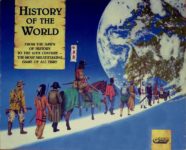
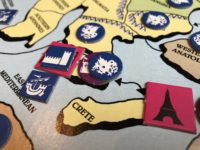
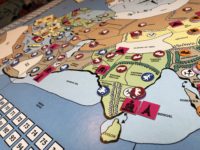
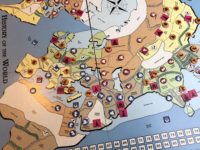
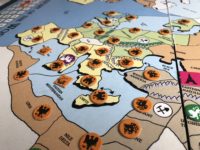

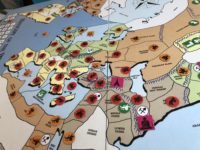


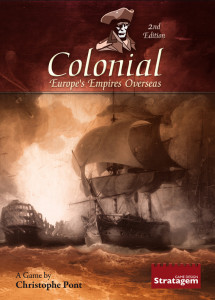
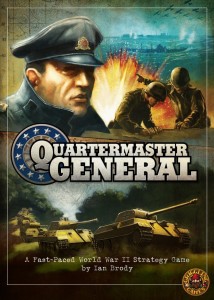
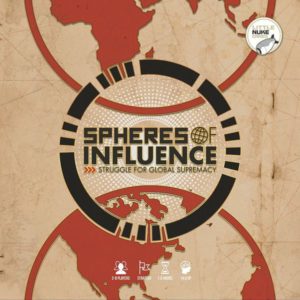


Sam says
Harking from 30 years ago, History of the World has aged rather well. At least for me, anyway. It leans heavily on old-school concepts of map of the world! Big fight! Chuck dice! - but without sliding into the interminable back-and-forth of Risk. The idea of controlling different empires initially sounded a bit meta to me, like I was there to service the game rather than the other way around. But it really works - instead of the epochs ending up as a slog, each new round injects the game (and the story, on and off the board) with fresh dynamism and tension. That guy is the Romans? We need to stop him! Or you do. I'll wait until you've done that and then conquer you in Africa, ha! You do need to be ok with the slings and arrows of ties broken and agreements forfeited, as well as the possibility of simply being wiped off the board - temporarily. Assuming you are - this is an awful lot of fun.